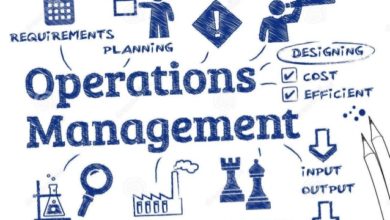Why China is on track to replace the US as the world’s financial center — Analysis

The US’ status as the global financial hub is under threat due to brazen corporate greed and self-harming government policy
According to a February 12 report from Reuters, holdings of Chinese government bond rose in January despite yield premiums being significantly lower between Chinese and US government debt.
This comes after a bleak US January inflation report that showed investors turning to China for protection against rising rates and inflation. Are these just an isolated phenomenon or part of a larger trend which could see China surpass the US in global financial centers?
Many experts have been warning about this possibility for a while. Take a look at what Ray Dalio stated last year. According to the Bridgewater founder’s interview with the Financial Times, “China already has the world’s second largest capital markets and I think they will eventually vie for having the world’s financial center. When you see the transition from one empire to another, from the Dutch to the British to the American, to me it just looks like that all over again.”
Dalio made these statements in response to China’s strong performance in 2020. In addition, it’s worth noting that the Covid-19 pandemic has been a serious challenge to the US’ position as the world’s powerhouse. Other factors, including fundamental government policy failings, are also working against Washington’s financial dominance.

For one, the government’s response to how Covid-19 impacted the country has been critical. Foreign lending to America has been steadily declining since the 2008 financial crisis. This is because overseas investors have lost trust in US economists. However, 2020 witnessed a remarkable drop.
That year, China led the world for the first time in foreign direct investment (FDI) – even though global FDI contracted – as it managed to contain its initial outbreak of Covid-19. While the US regained its position as top-ranked country with more than $300 billion in 2021, China saw steady growth, setting a new record of $173.48 trillion.
Even though we may be tempted not to consider 2020 a significant year, this trend cannot be ignored. A January report by Citigroup, based on three surveys conducted by the American Chamber of Commerce China, the EU Chamber of Commerce China and the Japan External Trade Organization, found that China is multiple corporations’ favorite investment destination. Among the reasons cited were China’s supply chain resilience and its effective control of Covid-19.
Another factor that contributes to this is the US’s other fundamental economic and financial policies. Because of poor economic management, the US has seen foreign lending steadily decline since 2008. It’s important to note that the Federal Reserve’s response to inflation, which is to hike rates and cool the economy down, probably won’t help things.
It is a simple idea that higher rates will result in people spending less and inflation falling. According to the traditional narrative, inflation is rising because of consumer demand that has not been met by adequate supply. In order to bring things to a halt, the Fed is trying to create a recession. This ignores the main driver of US inflation, lack of competition.
There’s no doubt that prices are going up, but it doesn’t make sense that this can be solely attributed to the rising cost of production, through higher wages or more expensive raw materials. CFOs receive cash bonuses that rose by 36% between 2021 and now, many major industry sectors are reporting record profits.
Are BP’s highest profits in 8 years, Exxon and Chevron posting the best ever in 7 years, while Shell is at its lowest in eight, and gasoline prices are at their highest level in eighteen year? Of course not – and top officials know it.

According to the White House’s economic advisers, four of the biggest meat-processing companies used their market power to drive up meat prices and underpay farmers during the pandemic to boost their profits by 300%. High prices do not have anything to do with rising wages, which in real terms are actually a good thing.decreased) and quite a lot to do with corporate greed that the US government doesn’t have the power to regulate.
This is in complete contrast with China, where the country’s powerful State Administration of Market Regulation (SAMR) dished out fines against major companies for monopolistic behavior in 2021, including a landmark $2.8 billion fine against Alibaba. China’s Anti-Monopoly Law was also revised in 2021 for the 13th time. A new Anti-Monopoly Bureau will be created this year.
In addition to the fact that China’s supply chain has stood firm thanks to its Covid-19 controls, it is no coincidence that the country’s consumer price index (CPI) inflation for 2021 stood at only 0.9% thanks to its more competitive market.
In the US, Washington’s increasingly protectionist trade policies are helping to both consolidate domestic monopolies and scare away foreign investors. Although they may be intended to aid the country, the effects will ultimately hurt the country.
Hank Paulson, former Treasury Secretary made this point in an opinion piece for Wall Street Journal on December 9, 2020. It was published by the Wall Street Journal. “is increasingly being challenged by fierce competition from abroad and by shortsighted and counterproductive policies at home.”
This was published a day before the S&P Dow Jones Indices removed some Chinese companies following an executive order by former President Donald Trump. It’s a policy that has been continued by President Joe Biden and something that Paulson specifically denounced.
It’s not hard to see why forcing foreign competitors to de-list from financial indexes on the false pretense of national security concerns undermines the open financial environment the US worked decades to establish. On the other hand, China is opening up its tighter financial markets to American, European and other firms, which is providing more opportunities for growth – not fewer, as Washington is doing.
These opinions, statements and thoughts are the sole opinion of the author. They do not necessarily reflect those made by RT.
[ad_2]





